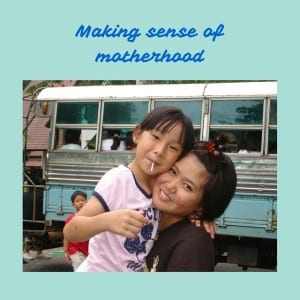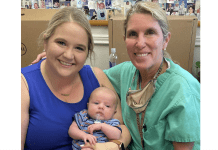For the past couple of days, I have been trying to find matching holiday pajamas for my family. Last night was no different: I browsed various websites, clearly unsatisfied because I could not find matching colors for sizes ranging from newborn to male medium. I complained to my husband, considered posting about it on social media, and instead, decided to take a break from the holiday craze and turned to a reputable news website.
And I saw it. The photo of the little Syrian boy who died, drowning, when the boat taking him, his father, mother and five-year-old brother capsized into the Mediterranean Sea. Well, happy thoughts for a Monday morning, right?
Hear me out – it will all make sense.
That photo broke my heart. I went through several stages of emotional distress. First, I got angry at whoever had posted that photo along with the article. Why did we need to see this? Was it to make the article more dramatic? To catch people’s attention with gruesome details? Then, I got very, very sad. I cried. I cried for him and for his brother. I cried for his father who now has to live with the burden of a dead family for the rest of his life. And I cried for the mother who had resorted to putting her sons on a boat with the hopes of a “better life” than what they had at “home.”
Mothers want the best for their children. I am convinced that they all do. Regardless of color, social status, citizenship, religion, or wealth. We, mothers, try every day to give our children what we think they deserve. We want them safe, healthy, and happy. We fight hunger, disease, and violence. Whether it is by choosing to give formula after trying dozens of attempts to nurse in the United States, teaching earthquake protection techniques in Japan, or not giving out meat until two years old to protect the digestive system in India, we do what we think is right. Because it makes sense to us.
 If you are a mother, regardless of the age of your children, you know that it gets really (really!) hard at times. You may not even know what to do. Because here is the thing: there is no school, no degree, no training to prepare for motherhood. Being a “good” mother is not validated by a certain track of studies or formal education. No mother is “board-certified,” and us human beings crave status and recognition among our peers. We trust our instinct, we listen to each other, and of course, we judge others when they do not do the “best” for their children. I don’t think that mothers judge each other because they think they are better people themselves. We, mothers, sometimes just do not understand how a person would not follow what we have found is “best.” Let’s not pretend that we never look down upon at each other. We all do. We have an opinion of others because we think. That’s human nature. Then, my question is: What is the ultimate “best” for our kids? Think about it. Good school? Educational toys? Nice home? Puppy? Safe car?
If you are a mother, regardless of the age of your children, you know that it gets really (really!) hard at times. You may not even know what to do. Because here is the thing: there is no school, no degree, no training to prepare for motherhood. Being a “good” mother is not validated by a certain track of studies or formal education. No mother is “board-certified,” and us human beings crave status and recognition among our peers. We trust our instinct, we listen to each other, and of course, we judge others when they do not do the “best” for their children. I don’t think that mothers judge each other because they think they are better people themselves. We, mothers, sometimes just do not understand how a person would not follow what we have found is “best.” Let’s not pretend that we never look down upon at each other. We all do. We have an opinion of others because we think. That’s human nature. Then, my question is: What is the ultimate “best” for our kids? Think about it. Good school? Educational toys? Nice home? Puppy? Safe car?
For that Syrian mother, “best” meant leaving on a raft to escape death at home. It meant taking the biggest risk of her life to protect her children. It certainly does not match the “best” most American mothers are looking to give their children. I am; however, not saying that our worries are trivial. My husband pointed out to me that heck – if I wanted to get matching holiday PJs, I should go for it and persevere. I felt shallow and ridiculous after I saw that photo; I felt embarrassed to have the luxury to worry about that kind of thing and not about what my daughter will eat tomorrow.


















Love this.